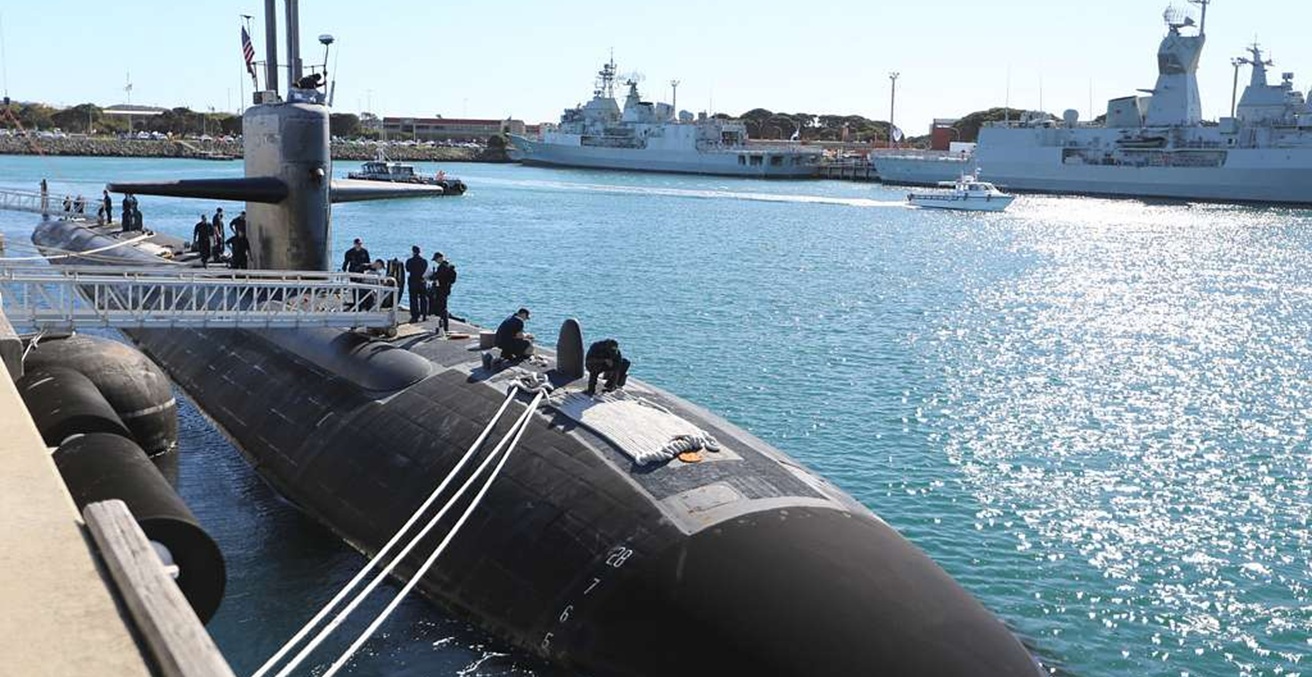This week in Australian foreign affairs: Albanese in Tonga for 53rd Pacific Islands Forum Leaders’ Meeting; Pacific Policing Initiative announced; Marles in Indonesia to sign Australia-Indonesia Defence Cooperation Agreement; new partnership to support climate resilient communities across Tonga, and more.
This week Prime Minister Anthony Albanese travelled to Tonga, 27-29 August, to attend the 53rd Pacific Islands Forum Leaders’ Meeting. Albanese was joined by the Minister for International Development and the Pacific, Pat Conroy, to discuss important issues affecting our region, including climate resilience, education, health and regional security.
On 28 August, Albanese joined other Pacific leaders to endorse the Pacific Policing Initiative (PPI), a major regional initiative to strengthen collective peace and security throughout the Pacific. “The PPI will boost the capability of Pacific nations to meet law and order and internal security requirements, and to support each other in times of need.” The PPI has three pillars and includes the establishment of up to four regional police training Centres of Excellence, located in the Pacific, to enhance policing capabilities through specialist training and operational support for Pacific police personnel; the Pacific Police Support Group (PPSG) – a multi-country police capability, with a ready pool of trained Pacific police to deploy in response to Pacific country requirements; and a PPI Policing Development and Coordination Hub to be hosted in Brisbane – including access to state of the art AFP facilities for training and to prepare for any PPSG deployments. “Australia will commit approximately $400 million over five years to ensure the PPI delivers on the aspirations of Pacific countries,” and will include infrastructure costs associated with new policing Centres of Excellence in the region.
Also on 28 August, Albanese and the Prime Minister of Tuvalu, Feleti Teo, announced the entry into force of the Australia-Tuvalu Falepili Union Treaty. “The Falepili Union Treaty was signed at last year’s Pacific Islands Forum Leaders’ Meeting in the Cook Islands, responding to Tuvalu’s request of Australia to help safeguard the future of Tuvalu. The Treaty covers three main areas of collaboration: climate cooperation, mobility with dignity, and shared security.” Under a mobility pathway, up to 280 Tuvaluan citizens per year will have the choice to live, work or study in Australia. According to the statement, “from today, and for the first time ever, Australia is obliged to respond when Tuvalu calls for assistance in the face of a major natural disaster, health pandemic or military aggression. Tuvalu, in turn, will mutually agree any new third-party engagement on defence and security-related matters with Australia.”
Deputy Prime Minister and Minister for Defence Richard Marles this week has visited Indonesia, 28 to 29 August, to meet with President-elect and Indonesian Minister of Defence, Prabowo Subianto and sign the Australia-Indonesia Defence Cooperation Agreement. The agreement is expected to enhance “practical arrangements, strengthening interoperability and supporting increased dialogue.” While in Indonesia, Marles will “visit the National Military Academy of Indonesia where they will sign the agreement. The pair will also discuss bilateral, regional, and global issues of shared strategic interest.” According to the statement, “The treaty-level agreement will allow for enhanced practical cooperation and interoperability between our defence forces in areas such as maritime security, counter terrorism, humanitarian and disaster relief, logistics support, education and training, as well as across defence industry.” In addition, the treaty will enable more “complex joint activities and exercises between the Australian Defence Force and Indonesian National Armed Forces; Australia and Indonesia to operate from each other’s countries for mutually determined cooperative activities; the continued exchange of personnel for education and training; technical cooperation, including in areas of science and technology; and enhanced legal protections for our respective personnel.”
Conroy announced a new partnership to support climate resilient communities across Tonga on 29 August. According the media release, “the Australian Government is investing $9.5 million in a new partnership to deliver critical, climate resilient infrastructure and activities to communities across the Kingdom of Tonga.” Up to 122 communities across Tonga are expected to benefit from the partnership, which will focus on developing robust “community development plans that reflect the priorities of villages, including women, youth and persons with disabilities.” “About 88 per cent of Tonga’s population lives in rural areas and 84 per cent lives within one kilometre of the coast.”
Also on 28 August, Conroy wished “bonne chance (good luck) to the 13 athletes from six Pacific Islands nations who will compete across 12 sports at the Paris 2024 Paralympic Games.” The media release notes that this will be “the largest team of Pacific athletes to qualify for a Paralympic Games, signalling the continued rise of Pacific sport on the global stage.” The 13 athletes are part of a “group of 40 Paralympic hopefuls from the Pacific who received support from the Australian Government through PacificAus Sports, in partnership with the Australian Olympic Committee (AOC) and Oceania Paralympic Committee (OPC).”
Conroy announced an improvement to the PALM scheme on 27 August in Tonga. The AUD$8 million partnership with the International Organisation of Migration will run programs to support families and individuals. According Conroy, “that funding will allow the pilot project to cross three countries yet to be determined. That will include predeparture training courses for families as well as courses upon return of the worker to support reintegration into their community. This is all about supporting families and individuals to make the most of the opportunity and deal with the challenges involved with them.”
Dr Adam Bartley is the managing editor for AIIA’s Australian Outlook and weekly columnist for The Week in Australian Foreign Affairs. He is a former Fulbright Scholar and resident fellow at the Elliot School for International Affairs, the George Washington University. Adam also has positions as post-doctoral fellow at the Centre for Cyber Security Research and Innovation RMIT University and as program manager of the AI Trilateral Experts Group. He can be found on Twitter here.
This article is published under a Creative Commons License and may be republished with attribution.




